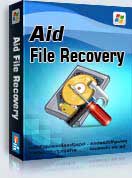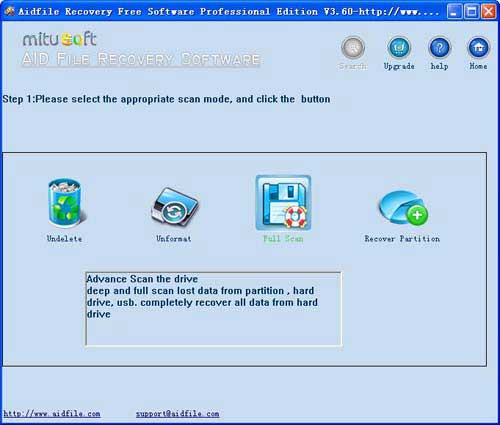BIOS Cannot Detect SATA Hard Drives CAN Detect SATA DVD Drive repair fix data recovery tool to recover data from BIOS Cannot Detect SATA Hard Drives CAN Detect SATA DVD Drive in Computer.
Use "unformat" to recover data from BIOS Cannot Detect SATA Hard Drives CAN Detect SATA DVD Drive after reformatting, quick format,full format,accidentally formatted,reformatting,High-level formatting,Low-level formatting.
Use "recover partition" to recover data from BIOS Cannot Detect SATA Hard Drives CAN Detect SATA DVD Drive partition corrupted,lost ,changed ,damaged.
Use "undelete" to recover deleted files from BIOS Cannot Detect SATA Hard Drives CAN Detect SATA DVD Drive after Virus attack,Recycle bin clear,disk cleanup,Press shift del by mistake,permanently empty recycle bin,shift delete ,accidentally deleted by a mistake.
Use "Full Scan" to recover data from BIOS Cannot Detect SATA Hard Drives CAN Detect SATA DVD Drive which can not be found with "undelete" and "unformat" and "recover partition",after showing an error,display as raw file system,unformatted,unknown partition,unpartitioned,needs to be formatted,or the file system is not exfat,not fat32,not ntfs.
BIOS Cannot Detect SATA Hard Drives CAN Detect SATA DVD Drive:My BIOS does not detect my old and new WD 500GB Hard Drives. It does not detect my old or new 1TB Seagate Barracuda drives. It DOES detect my 180GB Hitachi Desktar which I found in the trash (see the Long of it :) - It DOES detect my ASUS DVD Drive. I am temporarily using the Hitachi as my boot drive until I can get to the bottom of this. Because BIOS cannot detect them, I cannot install windows to them or use them as backup storage. Windows does not detect the hard drives neither, however, if I go to the device manager and scan for changes, the HD's will sometimes pop up, sometimes not. When they do pop up, the drive becomes available under My Computer and I can write to them. Unfortunately, they tend to not stick around for too long. My system - Motherboard: Biostar H67MU3 Ver. 6.x with an i5 2500k - 8Gb of DDR3 - Windows 7 Ultimate x64 (Also tried Windows 7 Enterprise x86 at my job) My steps - I have tried different SATA cables, checked every SATA port, tried removing all peripherals, tried IDE, AHCI and RAID settings from BIOS - Updated my BIOS, tried different hard drives singly as well as together. Tried different versions of my chipsets drivers. Started with the older versions that came on the install disc, tried Biostars more updated versions, tried intels even more updated versions. I tried seatools for the seagate and the data lifeguard for the WD's. But neither program could detect their respective equipment unless I get the device manager to show them. But since they only show briefly, any efforts to scan or test them are futile. Here's the Long of it - I built the computer myself. At first I was using a 1TB Seagate as the boot drive with a 500GB WD as extra storage. It came to pass that the Seagate gave me the click of doom. It died a sad and horrible death (although I could still kind of access it with recovery software). As I had no extra money and the cost of hard drives is currently astronomical, I had to hold off on getting a new one. I couldn't use the WD as it was full of files I couldn't bear to part with. I attempted to use a copy of a Knoppix disk I had just to get by. That's when I found that the WD was no longer being recognized. I figured it had become corrupted or something. In the meantime, while throwing out some trash, I happened to spy a discarded mini-pc in the dumpster. I pulled it out and checked to see if the hard drive was still in there. It was, and more importantly it was a SATA (my mb does not have any PATA ports) - I hooked that up, installed windows to it with no problems (other than a strange dislike of my sound card) - Once that was up and running, I put the WD back in to see what I could see. No joy. By this time, I was able to go pick up a new HD. Due to shortages the only ones available were 1TB Seagate Barracudas. I picked one up and put it in the computer and attempted to copy the Hitachi's partition to it. That's when I found out the drive wasn't being detected. I tried various ways of troubleshooting. No joy. I tried to install directly to it with my Windows disk. According to Windows, the drive cannot be written to. According to BIOS, the drive doesn't exist. I figured I had a faulty Barracuda...there's a lot of em out there. I took it back and picked up another WD 500GB. This drive wasn't detected by BIOS neither. So the round up is 2 WD's and 2 Seagates undetectable by BIOS - 1 Hitachi and 1 DVD drive detectable with no problems. After some research I found out that intel reported an issue with its 6series chipsets where the SATA ports degraded over time. But this was supposed to be fixed in the B3 versions of the hardware (which I have). Also, it completely boggles my mind that drives that were previously detected are no longer detected, yet this Hitachi I happened to find works perfectly, and the DVD drive never had an issue.
Aidfile Recovery Software Keyfeature
support FAT32 EXFAT NTFS and RAW file system
support Win32 (32 bits) and Win64 (64 bits)
Support Windows 11 & Windows 10, Windows XP, Windows 7, Windows 8, Windows 8.1,Windows Vista, Windows 2003, 2008, 2012.
Desktop & laptops Ultrabook:HP Pavilion,HP Compa,Alienware Alpha,Lenovo ThinkCentre,Lenovo IdeaCentre,Dell Inspiron,Dell XPS,Sony VAIO,Acer Aspire,Asus Transformer,Dell Latitude,Samsung Ativ Book,Asus VivoBook,HP Envy,Lenovo IBM ThinkPad,Lenovo IdeaPad Yoga,Microsoft Surface,Toshiba Satellite
MS Office document (Word, Excel, PowerPoint, Outlook) types (doc, docx, ppt, pptx, xls, xlsx, pst, etc.),photos (JPG, PNG, ICON, TIF, BMP, RAF, CR2, etc.), videos and audios (MPG, MP4, MP3, MTS, M2TS, 3GP, AVI, MOV, RM, RMVB, etc.), compressed files (rar, zip, etc.), PE files (exe, dll, lib, etc.) and so on.

